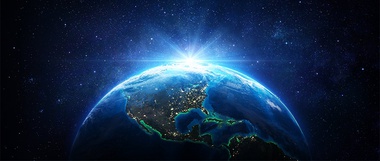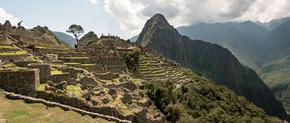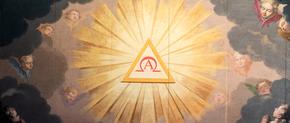The views expressed in our content reflect individual perspectives and do not represent the authoritative views of the Baha'i Faith.
Do all peoples have a Prophet? Has the call of God been raised to everyone? The Baha’i writings seem to answer that question affirmatively, especially in Abdu’l-Baha’s Tablet to Amir Khan.
In the following interview, I asked Dr. Nosrat Mohammadhosseini, a well-known Baha’i author and scholar of the Baha’i teachings, to offer his own comments on the meaning of Abdu’l-Baha’s Tablet to Amir Khan.
Q: Dr. Mohammadhosseini, in your opinion, does Abdu’l-Baha, in his Tablet to Amir Khan, indicate that Indigenous messengers of God appeared in the Americas, when he states, in this authorized translation, as follows:
In ancient times the people of America were, through their northern regions, close to Asia, that is, separated from Asia by a strait. For this reason, it hath been said that crossing had occurred. There are other signs which indicate communication.
As to places whose people were not informed of the appearance of Prophets, such people are excused. In the Qur’an it hath been revealed: “We will not chastise them if they had not been sent a Messenger.”
Undoubtedly in those regions the Call of God must have been raised in ancient times, but it hath been forgotten now. – Abdu’l-Baha, Additional Tablets, Extracts and Talks
A: Yes. By the phrase of the “Call of God” is definitely meant the advent of Manifestation(s) of God, since the “Call of God” is a Babi and Baha’i expression for manifestations of God, or, by extension, the promulgation of their teachings.
Q: So would you agree that the Tablet to Amir Khan is a clear text that enunciates what amounts to a newly discovered Baha’i teaching which confirms that Indigenous messengers of God definitely appeared in the Americas?
A: Yes, especially since Abdu’l-Baha, in his Tablet to Amir Khan, explicitly indicates that Manifestations of God were sent to the Americas. But there are several Baha’i texts that clearly imply this.
Q: Are these what Western scholars refer to as “universalisms”?
A: Yes. We have several texts from Baha’u’llah and the Bab that emphasize this truth. Interestingly, the Bab has referred to the advent of Manifestations of God throughout history and around the world, in different times and places. For example, in the Persian Bayan VI:16, the Bab wrote:
The Lord of the universe hath never raised up a prophet nor hath He sent down a Book unless He hath established His covenant with all men, calling for their acceptance of the next Revelation and of the next Book; inasmuch as the outpourings of His bounty are ceaseless and without limit. – Selections from the Writings of the Bab, p. 87.
Here, “without limit” means “universally” or “throughout history.” The Bab elsewhere confirms this interpretation of the Qur’an in language that is intentionally Qur’anic in style: “Unto every people We have sent down the Book in their own language.” – The Bab, Selections from the Writings of the Bab, p. 45.
In the “Commentary on the Sura of ‘The Sun’,” after explaining that by al-shams (“the sun”) is meant the Manifestation of God, Baha’u’llah affirmed that truth when he stated: “Every nation of the world hath been illuminated by one of these luminous Suns.” – Baha’u’llah, “Commentary on the Sura of ‘The Sun’,” provisional translation by Nosratollah Mohammadhosseini.
In this statement, Baha’u’llah declares that these Manifestations—the prophets and messengers of God—have appeared to every one of the peoples of Earth, although in sundry times and places. Obviously this includes, among others, Native Americans, First Nations Canadians and the Indigenous peoples of the Americas in general, as Abdu’l-Baha clearly affirms in the Tablet to Amir Khan.
Q: Thanks for referring to the “Commentary on the Sura of ‘The Sun’.” In another passage of this same Tablet, Baha’u’llah wrote:
On another level, furthermore, it [“the sun”] denotes the Prophets of God and His intimate associates, for such are the very “suns” of His Names and of His Attributes amongst His creatures. Indeed! Were it not for them, no one would have been irradiated by the Lights of deep knowledge, just as is evidenced by the fact that every religious community, among the religious communities of the earth, hath been irradiated by a “sun” among these resplendent “suns.” – Baha’u’llah, “Commentary on the Sura of ‘The Sun’,” provisional translation by Stephen Lambden.
So, Dr. Mohammadhosseini, in your view, do these Baha’i “universalisms” expand on similar statements in the Qur’an?
A: In citing the verse of the Qur’an, “We will not chastise them if they had not been sent a Messenger,” Abdu’l-Baha definitely shows that the American continent has been the scene of the advent of native messengers of God—since other Qur’anic passages, in relation to this verse, clearly testify that God has sent a messenger to every nation. This evidence from the Qur’an necessitates the advent of the Manifestations of God, including to the “people of America,” as Abdu’l-Baha stated in the Tablet to Amir Khan.
We should remember that, although the past religions have been “world religions” from the point of view of their basis in divine origin and in their ethical principles and regulatory ordinances, yet, socially speaking, they began as local religions. Here, I refer only to the Qur’an itself, which explicitly states that the Qur’an has been revealed by God to warn the people of Mecca and surrounding regions.
Unlike the Baha’i Faith and its universal aims, the immediate objectives of those earlier religions involved the education and guidance of specific peoples. This further evidence necessitates the advent of Manifestations of God specifically for the Indigenous peoples of the American continent.
Q: So what about Abdu’l-Baha’s apparent reference to the Bering Land Bridge Theory?
A: It is quite evident that Abdu’l-Baha is speaking about two different, but interrelated subjects: the question of migration and then the question of revelation. First, Abdu’l-Baha acknowledges that a migration across the Being Strait has been postulated by scholars (“it hath been said”) and that this has probably occurred as a matter of historical fact (“There are other signs which indicate communication”).
Although we are not aware of the exact question asked by Amir Khan in this regard, Abdu’l-Baha’s reply should be accounted as an answer to the question of crossing and communication, including the issue of whether there was any religious influence as a result of this migration.
Unless we are talking about prehistorical religions, so far as I know, no shred of evidence of the migratory presence of Western religions in the Americas—from pre-Columbian times—even exists. Scholars have found absolutely no trace of Western religious influence—whether that of Judaism, Zoroastrianism, Christianity, or Islam—on the American continent before the European conquest and colonization of the Americas.
Q: What do you think that Abdu’l-Baha meant in stating that “it hath been forgotten now”?
A: The term “forgotten” in the Tablet to Amir Khan is not related to those religions—Judaism, Zoroastrianism, Christianity, or Islam—or any Eastern religions, either, for the simple reason that the utter lack of evidence clearly shows that these religions did not enter the Americas prior to the invasions of Europeans, whether in antiquity or in the medieval period.
Scientifically speaking, no major natural catastrophe or cataclysm of a continental magnitude during the past two thousand years was sufficient to wipe out and obliterate all traces of those religions from the surface of the North and South American continents.
Thus the phrase, “the Call of God,” in this Tablet does not refer to the Call of God raised by the promulgators of those religions, because their adherents never reached the Americas in pre-Columbian times. If such were the case, then we would expect to see or at least find a few vestiges, even admixed with superstitions. Yet this expectation has never been met.
So the word “forgotten” definitely means that the teachings and influence of these Indigenous Manifestations of God who appeared in Americas no longer have the currency and influence that they once enjoyed.
Q: That which is “forgotten” can also be remembered, i.e. rediscovered or revitalized, since many of the Indigenous peoples of the Americas have preserved their spiritual heritages, notwithstanding various attempts, in the past, to suppress Indigenous languages, cultures and religions. Thank you, Dr. Mohammadhosseini, for these enlightening comments on the Tablet to Amir Khan.
















Comments
Sign in or create an account
Continue with Googleor